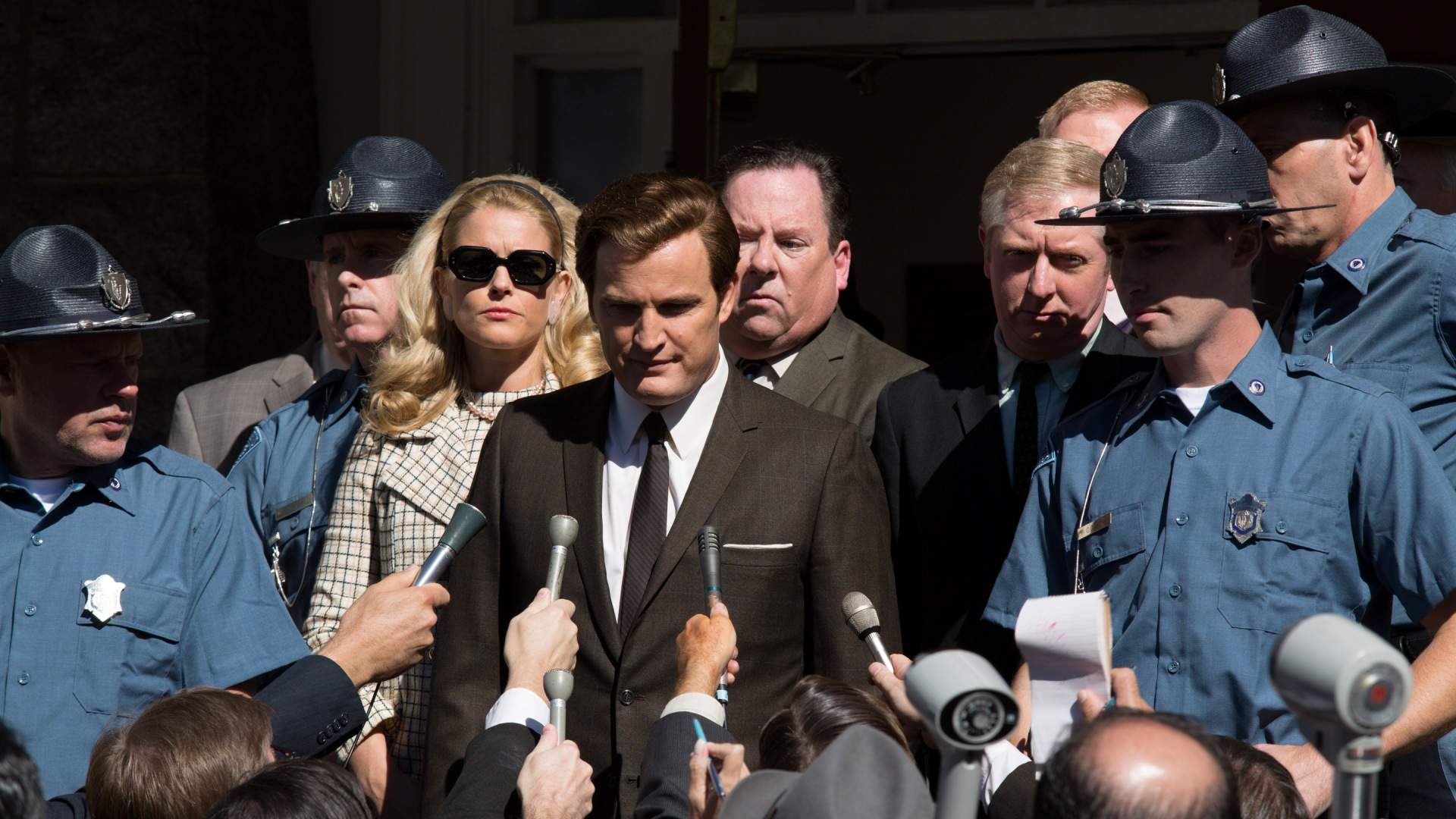Chappaquiddick
This timely drama dives into a scandalous chapter in US political history.
Overview
In the early hours of July 18, 1969, a car veered off a bridge on Chappaquiddick Island in Massachusetts. Ted Kennedy was driving, while Mary Jo Kopechne sat in the passenger's seat. He was a US senator, and a brother of slain American president John F. Kennedy. She was a former aide to Ted's other assassinated sibling, politician and aspiring presidential nominee Robert F. Kennedy. Along with Bobby's past campaign staff plus a few friends, they'd been partying in the lead up to the Apollo 11 moon landing, with Ted on the cusp of running for the country's highest office. But then he swerved into a tidal channel — and although he managed to swim to safety as the vehicle sank into the water, he left Kopechne drowning inside the car. More than that, he fled the scene and didn't report the accident until ten hours later.
Featuring Jason Clarke as the youngest Kennedy son and Kate Mara as Kopechne, Chappaquiddick explores this controversial chapter in US political history — one that, due to the fallout, would ensure that Ted never followed JFK all the way to the White House. Directed by filmmaker John Curran (Tracks), the movie presents a sombre account of a man caught between complicated extremes on several levels. Teeming with insecurity about living in his brothers' shadows, he was already trapped between his own ambitions and the expectations of his stern father (Bruce Dern). After the incident, he's torn between doing what's right and doing what's best for his career and reputation.
Or is he? With the bulk of the movie focusing on the aftermath of the accident, detailing the response to the situation as the hours and days pass, Chappaquiddick doesn't paint Ted in a favourable light. The film might pitch its protagonist as a conflicted man stuck in complex circumstances, but the script is also smart enough to realise that its underlying scenario is actually rather simple. Here, a guy does the wrong thing, but doesn't want to own up to it because it'll have considerable repercussions. It's as straightforward as Curran's efficient, unassuming directorial style, with the picture visually indistinguishable from plenty of other solemn takes on true political tales. Consequently, what ultimately eventuates is less a movie that unpacks a moral quandary, and more an incisive, quietly scathing portrait of power's corrupting influence – among other subjects.
Indeed, it's to the credit of Curran and first-time screenwriters Taylor Allen and Andrew Logan that the movie sets quite a number of topics in its sights, all with pertinent parallels to today. Chappaquiddick depicts the calculating cover-up instigated by the Kennedys, leaving cousin Joe Gargan (an effective against-type Ed Helms) as the lone voice of reason. Thanks to the real-life fact that Ted kept his senatorial spot until his death in 2009, it also offers a reminder that even the most serious of scandals can't completely damage someone with enough privilege and authority. Further, the movie demonstrates the forgiving nature of the constant news cycle, where today's lead story becomes tomorrow's footnote when something else comes along. In Ted's case, a small step for man and a giant leap for mankind (something that JFK helped set in motion) couldn't have come at a better time.
With a poised facade that can't completely mask his struggles, Ted remains an intriguing character, largely thanks to Clarke's strong performance. Tasked with playing a figure who's neither sympathetic nor the most ruthless person in the film (an honour reserved for Dern's grimacing patriarch, and a role that's slightly overplayed), the Australian actor is saddled with a delicate balancing act. Luckily, it's one that he handles well, with his stint as a troubled local representative on the excellent, underappreciated TV series Brotherhood proving a fantastic training ground. Chappaquiddick might work best as an indictment of everything from political dynasties to impropriety among elected officials to society's short attention span — not to mention the treatment of women by the rich and powerful — but the movie also serves up a solid character study. It's no Jackie, of course, but then again, few things are.





